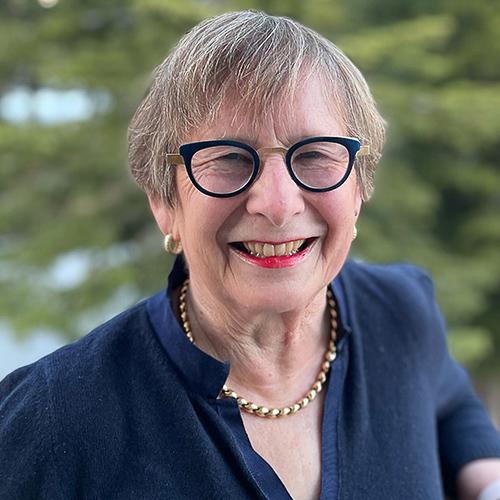The Rausser College of Natural Resources community would like to congratulate Catherine Koshland and Joseph L. Napoli on their retirement from UC Berkeley. We thank them for their dedication to students and to their fields, and for their service to the University.

Catherine Koshland (Courtesy of Will Howekamp)
Catherine Koshland
Professor, Energy and Resources Group, School of Public Health, and College of Engineering; Interim Vice Chancellor and Provost
Catherine Koshland is a scholar with a deep dedication to cross-disciplinary work whose research lies at the intersection of air pollution, combustion, energy, and public health. In her 38 years of service to UC Berkeley, Koshland has held numerous academic appointments and leadership positions across campus—including in Rausser College.
Koshland has a PhD in mechanical engineering from Stanford University and joined the Berkeley faculty in 1984. She was made an affiliate faculty member of the Energy and Resources Group (ERG) in 1987 before becoming a core faculty member ten years later. At the time of her retirement, Koshland served as the Interim Vice Chancellor and Provost, was the Wood-Calvert Professor in the College of Engineering, and also was a professor of environmental health sciences in the School of Public Health.
Her primary research focused on the analysis of pollutant formation during combustion—particularly involving chlorinated hydrocarbons and particulates—and the development of advanced diagnostic tools for non-intrusive monitoring. Koshland also examined environmental health exposure assessments, the impacts of alternative energy systems and alternative fuels for transportation, public participation in environmental decision-making, and green manufacturing and industrial ecology.
Koshland chaired the UC Berkeley division of the Academic Senate during the 2002-03 academic year. She was appointed vice provost for academic planning and facilities in 2004, a position that was expanded in 2009 to include teaching and learning. In 2015 she was appointed the University’s first vice chancellor for undergraduate education, a position she held through June 2021.
In addition to her lengthy service to UC Berkeley, her husband, Jim, served as chair of the UC Berkeley Foundation from 2019-2021. They are the parents of three Cal alum: Sarah, BA ’99; Maggie, BA ’2002; and Jacob, MBA ’2019.

Joseph Napoli (Courtesy of Joseph Napoli)
Joseph L. Napoli
Ruth Okey Professor of Nutrition and Toxicology
Joseph L. Napoli, the Ruth Okey Professor in Nutrition and Toxicology, has been a UC Berkeley faculty member since 1999, serving as chair of the Department of Nutritional Sciences from 2005 to 2016. Napoli also chaired the Metabolic Biology Graduate Group from 2000 to 2004 and again from 2006 to 2015, and was a member of the National Institute of Health’s Integrated Nutrition and Metabolic Processes study section from October 2009 to June 2013.
Napoli’s work blended techniques from analytical chemistry, bioimaging, biochemistry, and molecular and cell biology to explore the regulation of the molecular events that control retinol (vitamin A) homeostasis—especially activation of retinol into atRA (all-trans-retinoic acid).
Napoli earned a PhD in medicinal chemistry—a discipline that blends organic chemistry, biochemistry, and pharmacology—from the University of Michigan after originally pursuing undergraduate studies in chemistry. His deep background in chemistry and biology helped steer his research on retinol, a fat-soluble chemical that is indispensable for life and has diverse biological functions.
Retinol supports a wide range of biological actions essential for vision; development; cell proliferation; differentiation; reproduction; immune response; and nervous system development, maturation, and function. Napoli’s research helped determine the precise paths of retinol activation, its regulation, and its relationship to aging and disease. He also explored the role retinol played in modulating energy balance, appetite, fat storage (adiposity), and blood glucose control—all of which impact diabetes.
